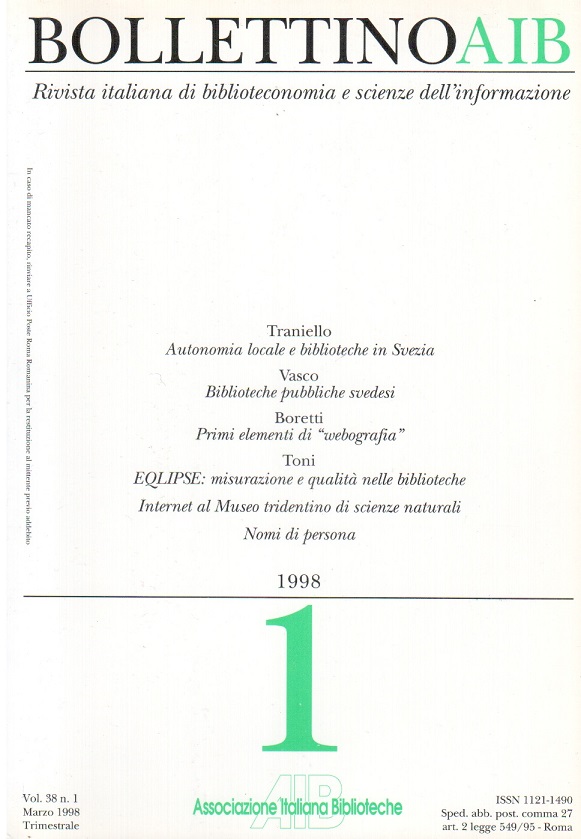Autonomia locale e biblioteche pubbliche: il caso svedese
Contenuto principale dell'articolo
Abstract
The connection between the public library and local government derives from the former's genetic heritage. The case of Sweden would appear to be exemplary in this regard. Our interest derives not only from the evident connection between the development of library services and the high level of autonomy of local bodies, but also from the administrative policy choices implemented to enable local authorities to exercise the autonomy conferred efficiently and on these administrative initiatives' repercussions on library legislation.
Sweden has a long-standing tradition of autonomy. Lay and ecclesiastical institutions intermingled until the two administrative spheres were separated in 1862. Simultaneously, town and provincial councils were endowed with powers to levy taxes for their administrative activities and to draw up their own budgets.
The wide-ranging reforms introduced since the 1950s have drastically reduced the number of local authorities. This process was engendered by the awareness that an efficient response at local level to the request for services deriving from a modern industrial society entails first and foremost a concentration of resources, possible only for territorial bodies endowed with a sufficiently large population to assure, through taxes, adequate revenues.
As regards libraries, state subsidies to town libraries were suspended in 1965, while provincial (or county) libraries are disciplined by a law of 1966 which envisages joint financing by the state and the provincial administration.
The new library law enacted in 1996 (no. 1596 of 20 December 1996) is what we in Italy would call a "framework" law and consists of only ten incisive sections.
This is a guideline law containing statements of principles, aimed above all at public libraries. The establishment of both town and county libraries is mandatory. As regards financing, local councils fund town library and school library services, while the counties, assisted by the state, fund the provincial library services.
The state finances the university libraries, lending centres and special projects.
The law pays specific attention to handicapped users and ethnic minorities.
Dettagli dell'articolo

Questo lavoro è fornito con la licenza Creative Commons Attribuzione - Condividi allo stesso modo 4.0.
